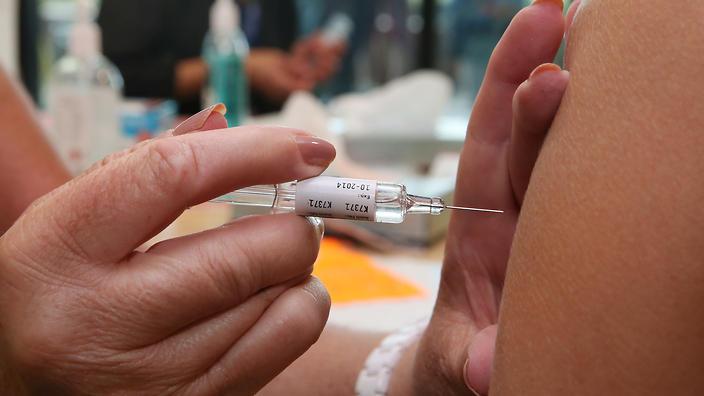Each year, influenza causes between 250,000 and half a million deaths around the world. Pregnant women and young infants have a higher risk of complications related to influenza; these complications can easily lead to death. The problem is particularly severe in the developing world, where access to health care is often limited, and health centers and hospitals are scarce and under-resourced. Babies are particularly vulnerable because there is no influenza vaccine approved for infants younger than six months.

Now a new study by researchers at the University of Maryland School of Medicine’s Center for Vaccine Development (CVD) in Baltimore, and the Center for Vaccine Development of Mali (CVD-Mali), has shown that immunizing mothers against flu can decrease by 70 percent the risk of their infants getting flu during the first four months after birth. This is the largest study to date to show that maternal vaccination against influenza is feasible and effective, even in one of the world’s least developed countries. The study was published today in the journal Lancet Infectious Diseases.
The study is the largest ever to look at maternal vaccination to protect infants from flu. It is the first to establish how long the protection lasts, and also to show a correlation between the mother’s antibodies and those found in the infant. Immunizing pregnant women against the flu is common in the industrialized world, but not in the developing world. This study shows that such immunization can work in the developing world too. This is the largest evaluation so far of the strategy in the developing world, and the first in West Africa, a region in which many people lack needed health care services. Mali has very high rates of maternal and infant mortality.
The lead author of the trial, Milagritos D. Tapia, noted that it would be feasible to give women in poor countries a flu vaccine. “Most pregnant women in Mali already receive a tetanus vaccine during pregnancy, to prevent tetanus in the newborn and the mother at the time of delivery,” said Dr. Tapia, who is an associate professor of pediatrics and a senior investigator in the CVD. “So a system to deliver vaccine to pregnant women already exists, and we can add the flu vaccine to this process.”
The research took place in Bamako, Mali, in West Africa. performing the trial there was important, said Samba O. Sow, the director of CVD-Mali, who is the co-lead author. “Mali is one of the poorest countries in the world,” he said. “But it has been a pioneer in introducing five new vaccines for meningitis, pneumonia and severe gastroenteritis in both young children and adults.”
The researchers studied 4,193 pregnant women; about half of the subjects received a flu vaccine; the other half received a vaccine for meningitis. The scientists followed the women’s infants for six months after birth. In the group whose mothers had been vaccinated against flu, vaccine efficacy was nearly 70 percent in the first four months after birth. This fell to 57 percent by five months, and disappeared by six months. Vaccine efficacy refers to the percentage of reduction in disease incidence in a vaccinated group compared to an unvaccinated group. In other words, in the flu vaccine group, in the first four months after birth, there were nearly 70 percent fewer cases of flu than in the meningitis vaccine group.
“These results are an important early step toward implementing maternal immunization against influenza to protect young infants, and the results are impressively positive,” said the senior author, Myron M. Levine, the Simon and Bessie Grollman Distinguished Professor at the University of Maryland School of Medicine. “However, much more needs to be done. A much larger study is necessary to measure the impact on more severe forms of influenza that lead to hospitalization and death.” Dr. Levine founded CVD four decades ago.
The study was funded by a grant from the Bill & Melinda Gates Foundation. “The new data highlight maternal immunization as a safe and effective way to protect very young infants against flu in some of the poorest places in the world,” said Keith Klugman, Director, for Pneumonia at the Bill & Melinda Gates Foundation. “We can protect babies by vaccinating their mothers and we’re excited to see what the future holds for expanded possibilities in maternal immunization.” In recent years, the organization has invested heavily in research and efforts to reduce child mortality, especially in places such as Mali, which is one of the poorest countries in the world.
###
Media Contact
David Kohn
[email protected]
410-706-7590
@ummedschool
http://medschool.umaryland.edu/





